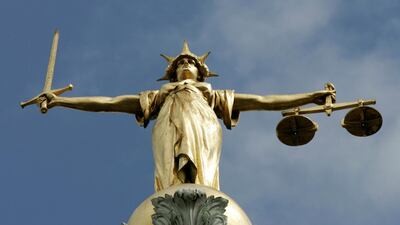Criminal trials have been suspended in the UK because of the coronavirus pandemic in a move that raises the prospect of delays to the high-profile extradition cases of Indian jeweller Nirav Modi and financier Arif Naqvi.
New trials lasting more than three days would not start before the end of April to ensure that finished without lawyers or jurors dropping out, the most senior judge in England and Wales announced on Tuesday.
Steps were being taken to ensure as many hearings could take place as possible “by telephone, video-link or online”, said Lord Burnett, the Lord Chief Justice.
The Bar Council, which represents barristers, has called for a 30-day halt to all cases that have to be held in a courtroom with people present.
“We are calling for a suspension of all in-person hearings across all jurisdictions, save in very exceptional circumstances where a video link or phone hearing cannot accommodate the interests of justice,” said Bar Council chairwoman Amanda Pinto.
Extradition cases involve a single senior magistrate and no jury but groups representing lawyers have urged members not to put their health at threat to attend cases.
Extradition lawyers are understood to have had a conference call on Wednesday to discuss the implications of the coronavirus threat.
Nirav Modi, 48, the detained diamond tycoon, is due to face a full extradition hearing in London over five days from May 11.
The Indian authorities want to put him on trial for banking fraud. He has appeared in court from prison videolink in previous hearings.
Arif Naqvi, the founder of the Abraaj Group, is awaiting an extradition hearing in July as US prosecutors seek his return to face fraud charges.
He is currently on bail and subject to 24-hour curfew at his family’s flat in London after posting £15 million bail.
He has been allowed only to leave the gated mansion block to attend medical appointments and to attend a mosque. Both men deny the allegations against them.
The restrictions came after Hashem Abedi, the brother of the suicide bomber who killed 22 people in Manchester, northwest England, in May 2017 was convicted of murder on Tuesday, but only after the jury was cut to 11 after one self-isolated because of health concerns.
Cases that have already started will continue but the changes will stop new cases in crown courts, which hear the most serious criminal cases, and have 12-strong juries to decide them.
Lawyers said that the suspension of cases could have knock-on delays throughout the UK court system.
Simon Davis, president of the Law Society of England and Wales, which represents solicitors, said that measures were needed to guarantee the safety of those attending court without compromising justice.
“Government proposals to establish online hearings as part of their emergency coronavirus legislation may be a pragmatic solution for some cases,” he said.
“The challenge will always be to make sure that the quality of justice delivered is not unduly compromised if courts have to temporarily close or deal with matters remotely.”


